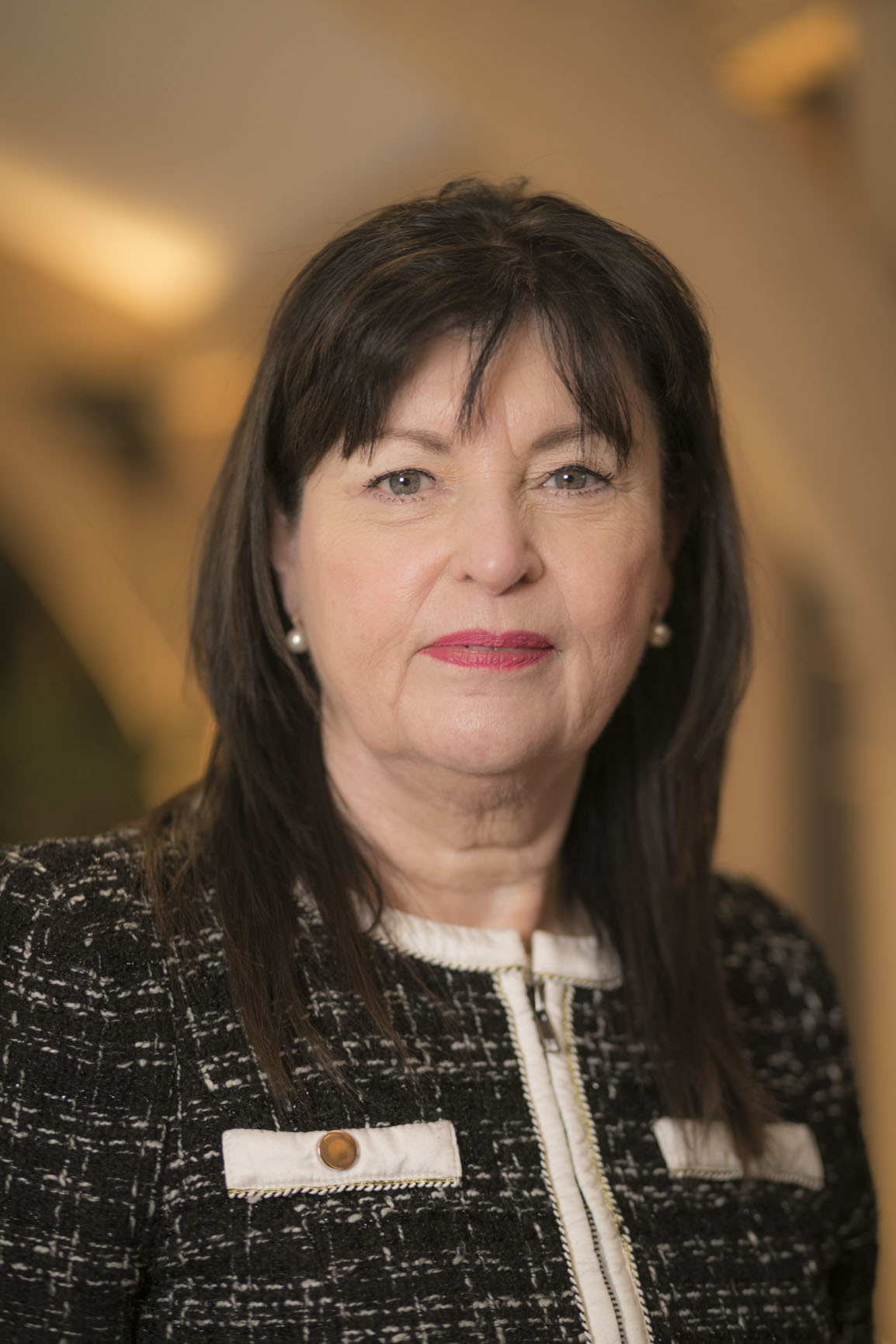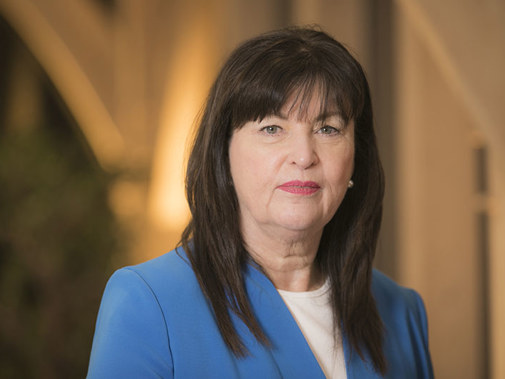‘Sometimes people only see public health when there is a crisis,’ says FPH (Faculty of Public Health) president Maggie Rae.
‘They only see the chief medical officers when there’s a crisis, so [since COVID] I think everyone in the world has probably got a better idea about public health professionals and what they do.’
A greater awareness and understanding of the role of public health is one of the legacies of the pandemic that may affect Professor Rae’s specialty, although she is clear that is far from being the only or most significant one.
During her career she has occupied roles at almost all levels of the health economy including positions at PHE (Public Health England), Health Education England and twice serving as a director of public health.
Professor Rae also worked at the Department of Health where she led on health inequalities, an issue that is a driving force in her career and which she says has been thrown into sharp relief by the pandemic.
‘As a public health specialist, you serve the population you’re responsible for,’ says Professor Rae.
‘I think my public health practice is really driven by health inequalities and always has been. My grounding has always been how can we reduce health inequalities in this country, where there’s plenty to do, but also across the world.
‘What COVID-19 has demonstrated, which we knew already, is we [the UK] have massive health inequalities; it has also raised the profile of the ethnic minority community and, I think, shone a light on racism.’
Badly-timed restructure
Public health professionals nationally, regionally and locally played a critical role, particularly during the early phases of the pandemic last year.
2020 also brought about a huge upheaval for the specialty following the unexpected announcement by the Government that PHE was to be overhauled.
This restructure, coming at a time when health professionals were already stretched to breaking point and facing spiralling levels of stress and burnout, left many questioning the timing and motivation of the Government’s decision, as well as what would come next.
Last month finally saw the transfer of all PHE health protection functions to the UKHSA (UK Health Security Agency) while the health improvement and public health work of PHE transferred to the new Office for Health Improvement and Disparities, NHS Digital, NHS England and NHS Improvement.
The BMA already had concerns about PHE’s ability to challenge the Government about individual public health specialists’ ability to speak out.
It has even greater concerns about whether these successor organisations will be sufficiently independent. The association has also questioned whether the decision to separate former PHE responsibilities, such as health protection, health improvement and healthcare public health, risks fragmenting the delivery of these services.
Trying to restructure in the middle of a pandemic – I don’t think anyone thought that was a good ideaDr Rae
While Professor Rae believes it’s still too early to judge whether public health doctors and specialists staffing these new bodies will be able to speak truth to power, she recognises these areas of concern around the reorganisation of public health.
‘Trying to restructure in the middle of a pandemic – I don’t think anyone thought that was a good idea,’ she says.
‘Public health is probably the most reorganised of all the medical specialties and that does have its consequences. We did not vote for the disestablishment of PHE, we have run health-protection agencies separate from the rest of public health before and the conclusion was that that didn’t work terribly well.
We need to join up public health and be sure that we’ve got the services necessary to improve the public’s health without silos. ‘The big task of public health professionals will be to get their voices heard, be in positions of influence and power and speak up for the health of the population.’
 RAE: ‘The big task of public health professionals will be to get their voices heard, be in positions of influence and power, and speak up for the health of the population’
RAE: ‘The big task of public health professionals will be to get their voices heard, be in positions of influence and power, and speak up for the health of the population’
While increased investment in public health is another critical factor in addressing the social and health inequalities so markedly exposed by the pandemic, funding given to local authorities in England for running public health services such as smoking cessation has been cut by 24 per cent in the past six years.
The BMA and others have called on the Government to reverse years of cuts to public health services by committing to a £1bn increase in the public health budget.
This recommendation ultimately went unrecognised by chancellor Rishi Sunak in his 27 October autumn budget and spending review, which disappointingly saw no additional investment into the public health grant being announced.
We need to ensure the effects of the pandemic on public health staff are recognisedDr Rae
To Professor Rae, the failure by Government to invest adequately in public health is a frustratingly obvious false economy.
‘If you compare and contrast to what we spent on test and trace the public health budget is a very minor amount, but public health interventions are very inexpensive and very cost effective,’ says Professor Rae.
‘I think one of our problems is the Government does not seem to want to fund local government. The reality is unless we improve the funding then there won’t be levelling up in terms of people’s health.’
Workforce stress
As well as outlining the actions needed to reduce inequalities and improve services for patients, Professor Rae is acutely aware of the mental strain and disillusionment felt by many of those working in public health.
The FPH is set to publish its survey on the wellbeing of staff in the public health workforce, and what steps it believes employers should take to support doctors. This is likely to reinforce the findings of the BMA’s own survey of an exhausted workforce with low morale which doesn’t believe it is being listened to.
Dr Rae believes that listening to the workforce and ensuring that public health doctors have a prominent voice in future plans for the NHS such as the Health and Care Bill, are crucial.
‘What we have to do is get the acknowledgement of the support needed for those public health professionals,’ she says.
‘You need resilience in public health, but we also need to ensure the effects of the pandemic on public health staff are recognised.
‘We want the role of public health to be recognised [in the bill] nationally, regionally and locally [and] I think organisations that are trying to embrace population health realise that some of the great skill sets actually sit with public health professionals.’
Pictures by Charlie Birchmore

